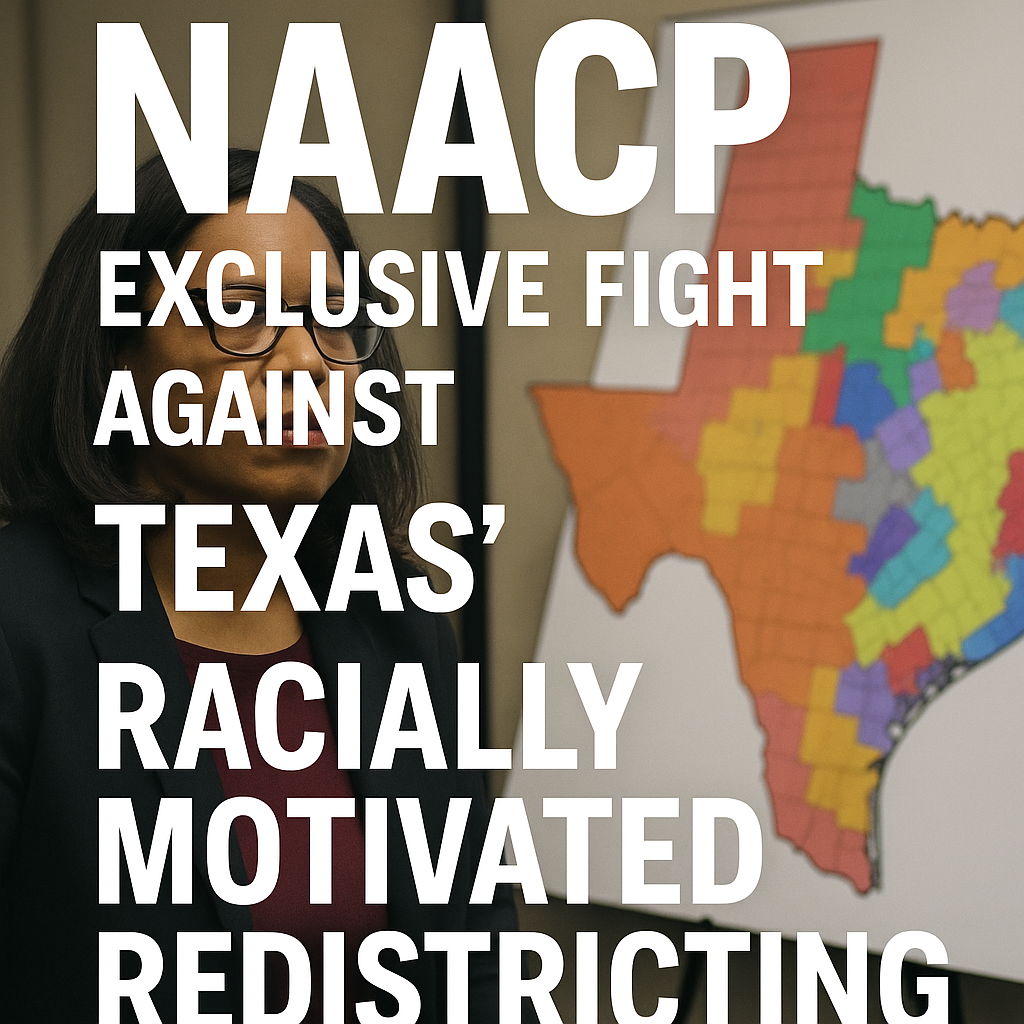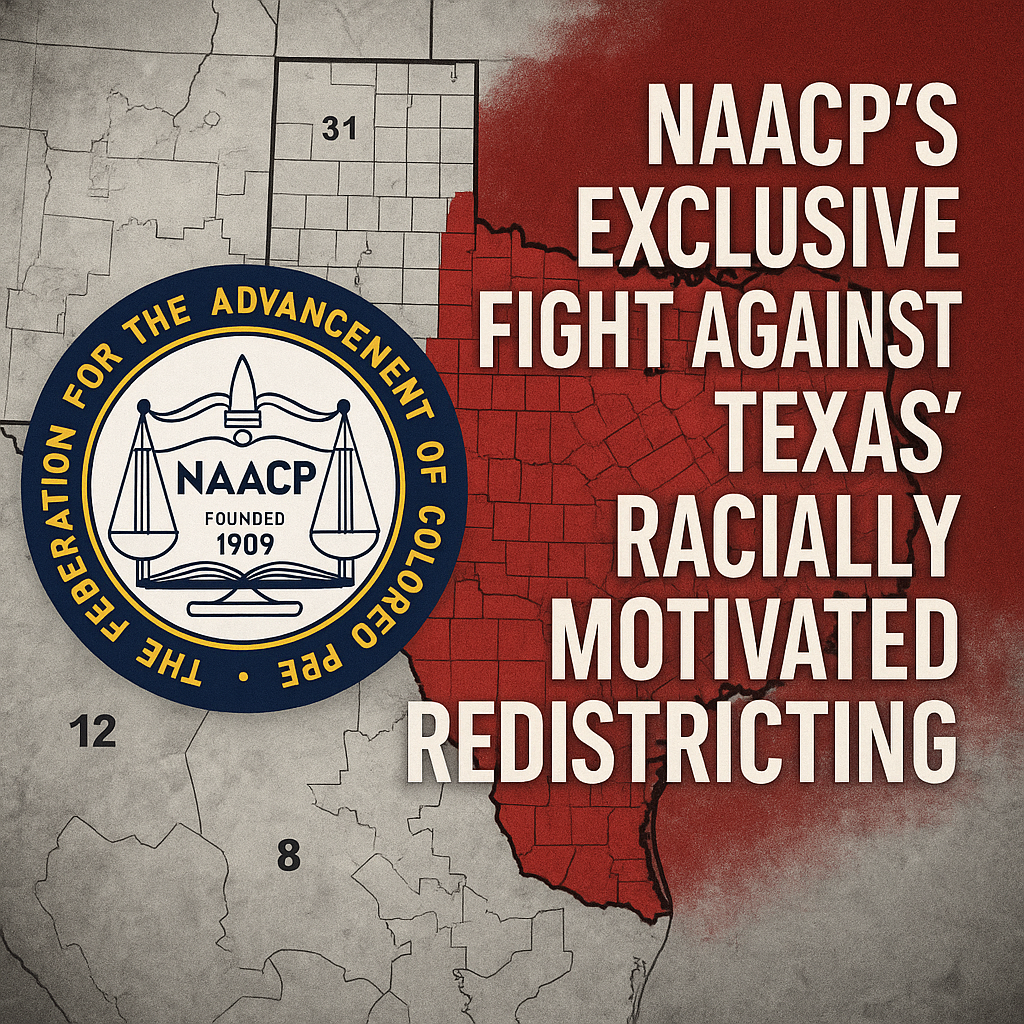NAACP’s Exclusive Fight Against Texas’ Racially Motivated Redistricting
NAACP’s Exclusive Fight Against Texas’ Racially Motivated Redistricting
The NAACP’s exclusive fight against Texas’ racially motivated redistricting highlights the ongoing tension between voter representation and political maneuvering. As demographics shift and political landscapes evolve, the implications of redistricting become crucial for ensuring fair electoral opportunities. Recent developments have sparked considerable debate, reflecting varied perspectives on this contentious issue.
Understanding the Context of Redistricting

Redistricting is a process that dictates how electoral district boundaries are drawn, which significantly impacts representation in government. In Texas, as in many states, this process can be manipulated to favor particular political parties or demographic groups. The NAACP, alongside other advocacy groups, has raised alarms about what they consider discriminatory practices that marginalize communities of color.
The Current Situation in Texas
The NAACP has formally filed a lawsuit against the state of Texas, alleging that recent redistricting efforts are instigated by racial bias. According to reports from Atlanta Daily World, the organization’s lawsuit seeks to challenge the “racially motivated redistricting” that they argue dilutes the voting power of minority groups, particularly African American and Latino communities.
Key points raised by the NAACP in their lawsuit include:
– Disproportionate Impact: The organization claims that the new district maps are drawn in a way that undermines the electoral strength of minority populations. By combining certain communities or dividing others, the maps make it more difficult for these groups to elect candidates of their choice.
– Historical Context: This battle doesn’t arise in a vacuum. Historically, Texas has been criticized for its attempts to disenfranchise voters of color. The NAACP’s actions can be viewed as part of a long-standing struggle for civil rights and fair representation.
– Legal Precedents: Legal frameworks such as the Voting Rights Act provide a basis for the NAACP’s claims. If successful, this lawsuit could not only impact Texas but also set a precedent for similar cases across the U.S.
Diverse Viewpoints on the Redistricting Debate
The redistricting issue in Texas has attracted attention from various quarters of society, generating differing opinions on the fairness and intentions behind the new district maps.
Support for the NAACP’s Position
Many civil rights advocates and organizations support the NAACP’s stance, viewing it as a necessary challenge to protect voting rights. They argue that transparent, fair processes in drawing district lines are essential for democracy. This sentiment is echoed in various outlets, including The Atlanta Voice, which highlights how undermining minority representation threatens the foundational principles of equal rights.
Additionally, supporters claim that suppressing minority voting power perpetuates systemic injustices, contributing to broader social inequalities.
Opposition and Counterarguments
Conversely, some political analysts suggest that the complaints are politically motivated. Opponents of the NAACP’s efforts argue that Texas’ demographic shifts necessitate changes in redistricting to reflect population growth accurately. This viewpoint posits that the adjustments made are more about logistical representation than racial animus.
Some politicians contend that the allegations of racism are exaggerated, framing the argument as a typical post-redistricting dispute where both sides are equally dissatisfied. Such claims emphasize the complexity of the redistricting process and the influence of partisan interests.
The Importance of a Fair and Open Process
The ongoing legal battle underscores the critical need for transparency and fairness in the redistricting process. If allowed to continue unchecked, racially motivated redistricting can significantly impact voter turnout and representation.
– Community Involvement: It is vital for local communities to engage actively in discussions about redistricting. Awareness can empower citizens to advocate for their interests, reminding policymakers that their actions are closely monitored.
– Legislative Reforms: Creatively designed reform measures may be necessary to mitigate potential biases in the redistricting process. Public forums, legislative oversight, and independent commissions can serve as checks against discriminatory practices.
– Continued Advocacy: Organizations like the NAACP play a pivotal role in championing the rights of underrepresented populations. Their efforts in this lawsuit are not only about Texas; they represent a broader fight for civil rights across the nation.
Conclusion: Navigating a Complex Landscape
The NAACP’s fight against Texas’ racially motivated redistricting opens the door to deeper discussions about representation, rights, and the integrity of the electoral process. As the lawsuit unfolds, it will be essential to closely monitor developments and implications for both Texas and the wider United States.
While opinions on redistricting practices may vary, the quest for equitable representation continues to be a fundamental tenet of a healthy democracy. Ultimately, fostering an open dialogue is imperative for ensuring that the voices of all citizens are heard and represented.















